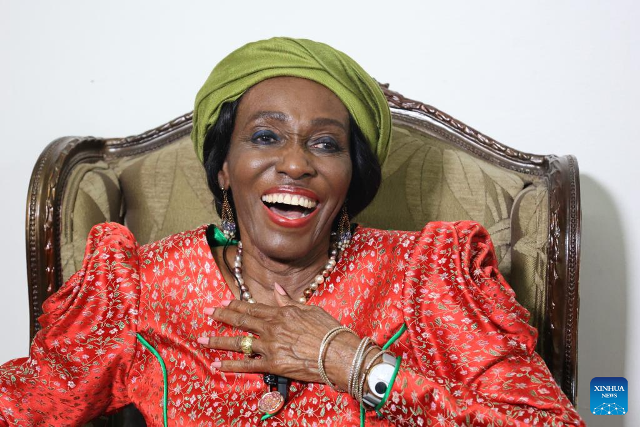Nana Konadu Agyeman-Rawlings, Ghana’s former First Lady and founder of the 31st December Women’s Movement, has died, leaving behind a legacy that reshaped Ghana’s political and gender landscape.
Often described as a pioneering force in Ghana’s Fourth Republic, she was widely recognized for her advocacy on women’s rights, constitutional reform, and civic empowerment, and played a transformative role in advancing gender equity and democratic participation.
Also Read: CETAG warns of shutdown across 46 colleges over allowance delays
Born in 1948, Agyeman-Rawlings emerged as a national figure during the revolutionary transition in 1979, alongside her husband, Flight Lieutenant Jerry John Rawlings.
While Rawlings led the Provisional National Defence Council, Nana Konadu mobilized grassroots support for women’s rights, education and economic empowerment.
Her advocacy led to landmark legal reforms, including the Intestate Succession Law (PNDCL 111), which secured inheritance rights for widows and children, and her efforts helped embed gender equality provisions in Ghana’s 1992 Constitution.
She was also instrumental in Ghana becoming the first country to ratify the UN Convention on the Rights of the Child in 1991.
Her death has prompted tributes from across the political spectrum, including an independent writer and IMANI associate, Mr. Kay Cudjoe, who called her “the mother of the fourth republic.
“There are some women history cannot bury,” Mr. Cudjoe said in a tribute shared with the Ghana News Agency. “They rise again in the conscience of a nation that once misunderstood them. Nana Konadu was one such woman.”
He described her as “a figure too immense for the comfort of her time, too resolute for the silence expected of a wife, too visionary to wait for permission.”
Her founding of the 31st of December Women’s Movement in 1982 marked a turning point in Ghanaian civil society.
The organization championed access to education, childcare and vocational training for women, particularly in underserved communities.
Under her leadership, the movement established schools, nurseries and cooperatives across the country.
“She saw what power could forget, that a revolution without women is only half awake,” Mr. Cudjoe said. “The movement became a republic within a republic: thousands of women finding their voice, their dignity, and their collective power.”
Mrs. Konadu Agyeman-Rawlings played a key role in shaping the 1992 Constitution, advocating the inclusion of gender equality provisions.
She viewed politics as a moral responsibility, often challenging traditional expectations of women in public life.
In 2011, she made history as the first woman to contest the leadership of the National Democratic Congress, challenging then-President Professor John Evans Atta-Mills.
Though unsuccessful, her candidacy was seen as a landmark moment for women’s political participation in Ghana. She later founded the National Democratic Party in 2012.
“Her loss was political, but her defiance was historic,” Mr. Cudjoe noted. “She stood as Ghana’s first woman to demand, in full daylight, the right to lead, not as wife, not as symbol, but as citizen.”
Her critics described her as ambitious and defiant, but supporters saw her as principled and visionary.
She remained active in public discourse, often speaking on issues of governance, equity and national development.
“She mothered the vulnerable when the state was deaf,” Mr. Cudjoe said. “She confronted patriarchy when feminism had no microphone. She stood upright when history bent others into compliance.”
Nana Konadu Agyeman-Rawlings is remembered for her advocacy, resilience and contributions to Ghana’s democratic evolution.
Her legacy includes constitutional reforms, expanded civic space for women, and a redefinition of leadership beyond traditional roles.
“She stitched equity into our constitutional fabric,” Mr. Cudjoe added. “The seeds she planted are still germinating in the soil of a freer Ghana.”
She is survived by her children and extended family.
GNA


